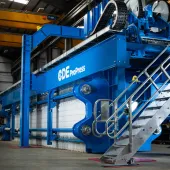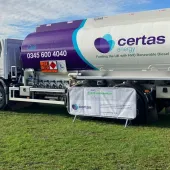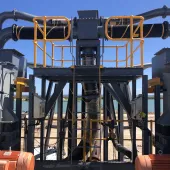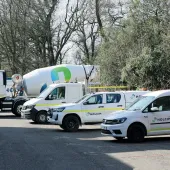Turning sawmill residue into renewable diesel

Boral and Australia’s Federal Government to fund feasibility study for second-generation biorefinery
BORAL and Australia’s Federal Government have joined forces to fund a A$1.2 million feasibility study to determine the technical and financial viability of building a second-generation biorefinery in New South Wales (NSW), with the potential to turn hardwood sawmill residue into renewable diesel fuel and bitumen.
The study is supported by the Australian Renewable Energy Agency (ARENA), which has agreed to grant A$500,000 towards the study with Boral providing the additional A$700,000.
Under the study, Boral are exploring the potential conversion of up to 50,000 tonnes of sawmill residues from their Herons Creek hardwood sawmill, near Port Macquarie, in NSW, into renewable transport-grade diesel and bitumen using world-first technology.
The study will consider a mechanical catalytic conversion technology, developed by Spanish-based Global Ecofuel Solutions, combined with the potential biorefinery at Herons Creek. The process has never before been used in a production-scale facility.
The sawmill residues are currently utilized in low-value uses such as landscape supplies and boiler fuel.
Wayne Manners, executive general manager of Boral Building Products, said the company was very pleased with the support the project had received from the Federal Government, through ARENA.
He added that, if the feasibility study was successful, the transport-grade renewable diesel and bitumen produced at the potential new biorefinery could eventually account for up to 15% cent of Boral’s annual needs.
Boral are large consumers of both diesel and bitumen, using around 100 million litres of diesel a year to operate their businesses in Australia.
‘The application of this technology has the potential to transform the way we use low-value hardwood sawmill residues into a resource that could be highly valuable not just to Boral, but to the industry more generally,’ said Mr Manners.
ARENA’s chief executive officer, Ivor Frischknecht, said the project shows that big businesses are increasingly moving towards renewable energy solutions.
‘The transport sector is a significant user of energy in Australia, with liquid fuels a key long-term energy source for heavy-vehicle road and air transport since they cannot readily be electrified. Bioenergy comprises a growing proportion of Australia’s energy mix, and this new technology could see residue from the production process be used to reduce Boral’s reliance on diesel and bitumen derived from fossil fuels,’ he said.









